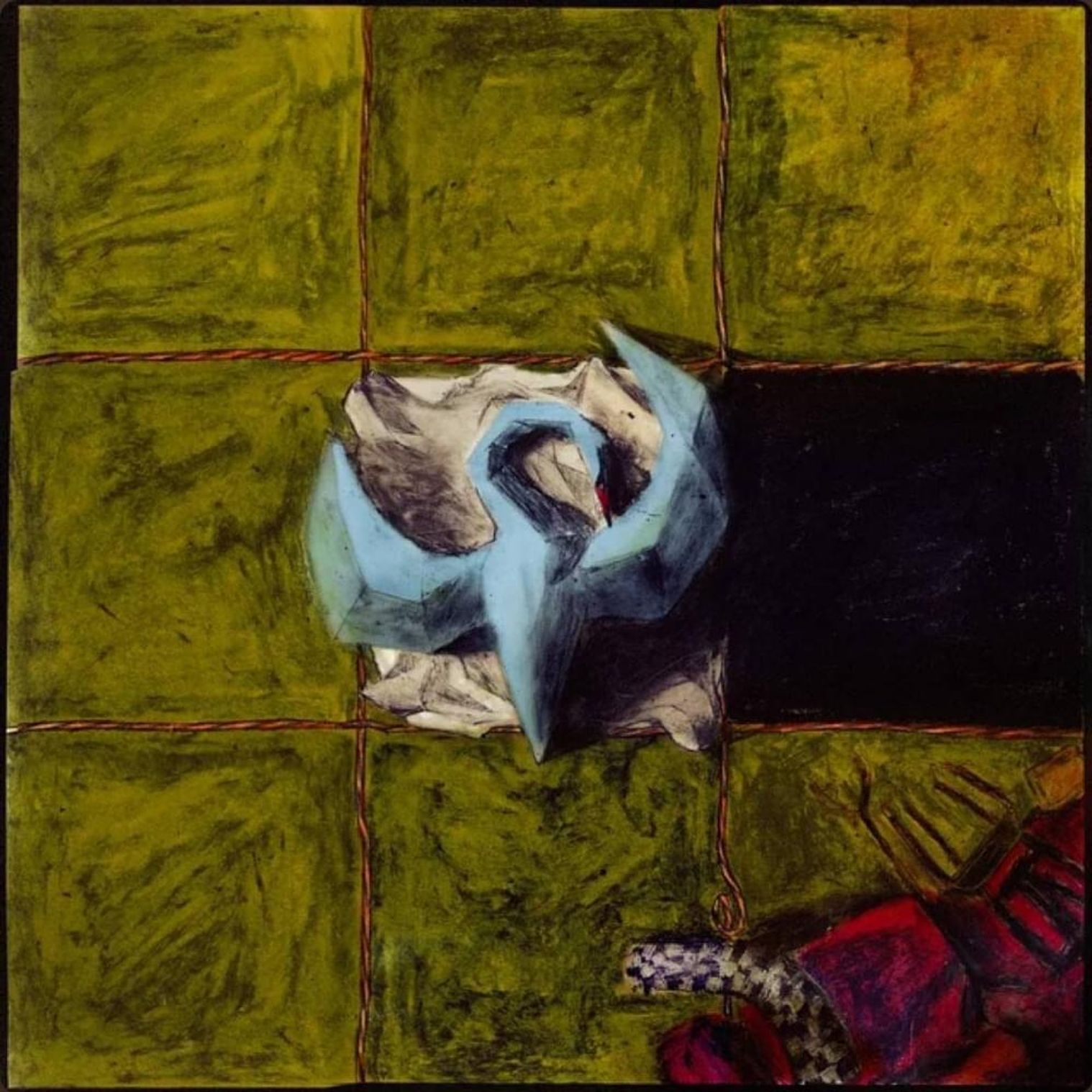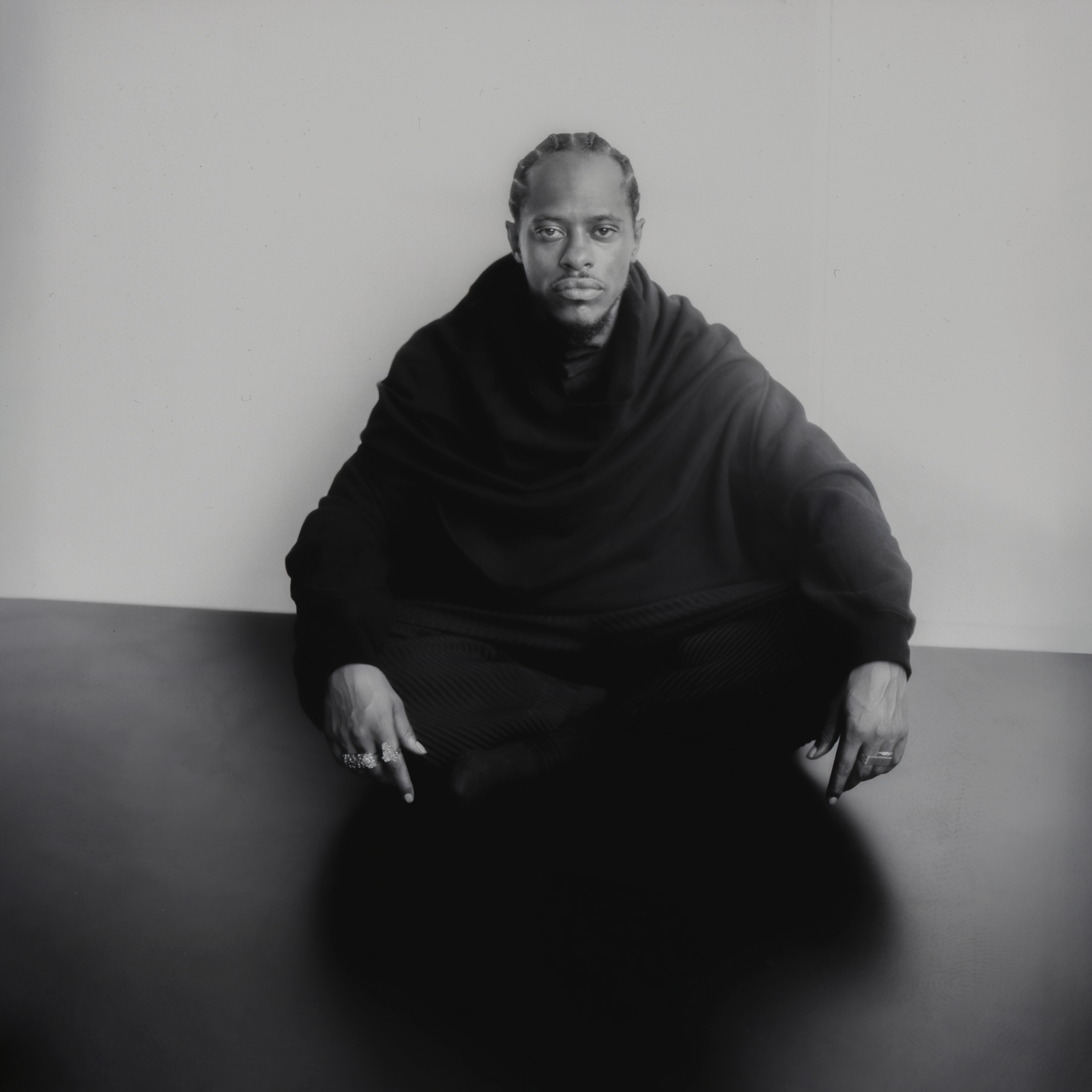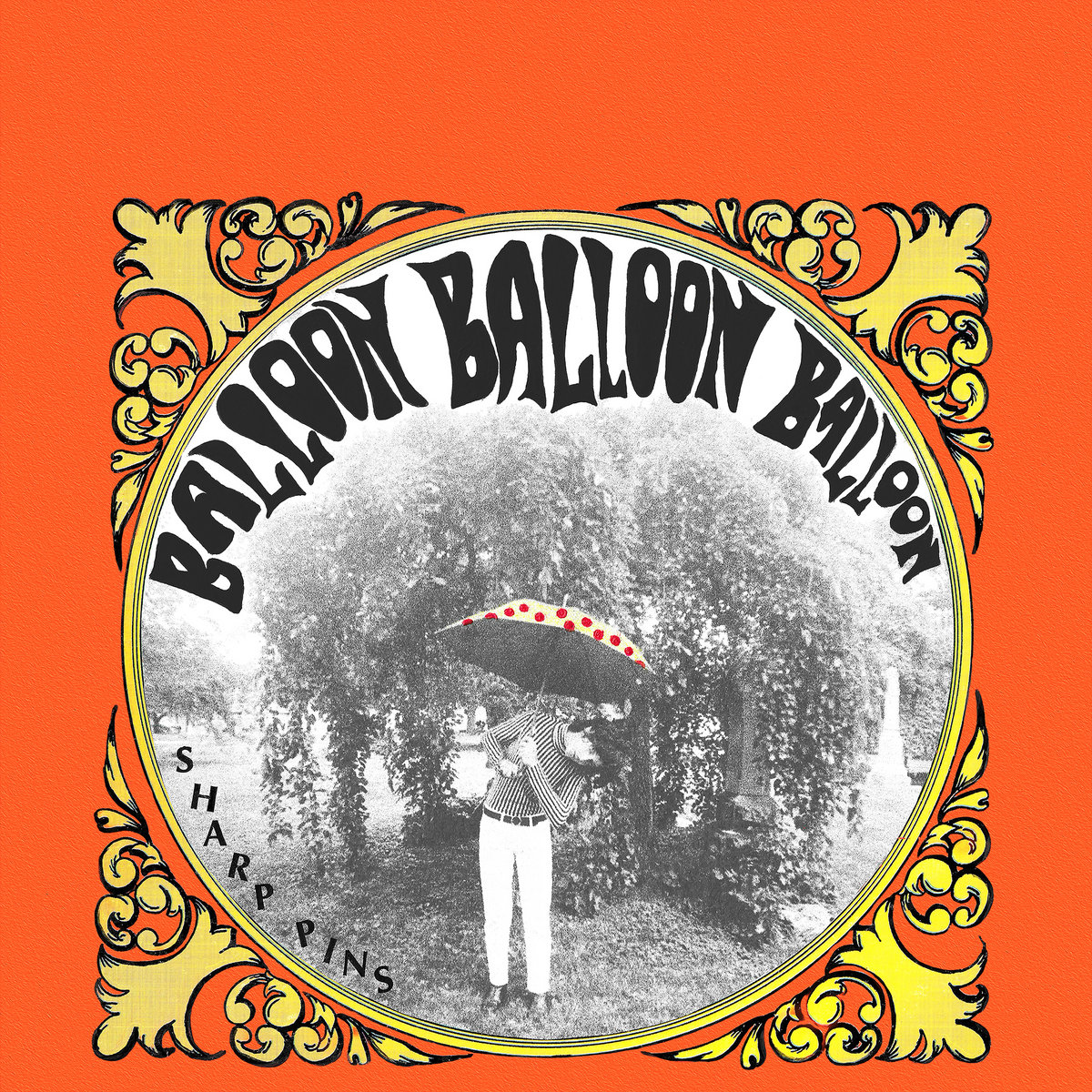"Sounds like a drunk college kid imitating Tom Waits." That was what my wife heard when she heard Matthew Dear's voice. And it's pretty much true, except during the moments where Dear sounds like a drunk college kid imitating Berlin Trilogy-era David Bowie. It's part of the man's charm. Dear never intended to become a singer. Once upon a time, in the early-'00s era when some music critic coined the term "microhouse," Dear was one of many producers doing twitchy, architecturally fascinating things with classic techno sounds. But on the 2003 single "Dog Days," Dear added his own heavily treated voice to the mix, adding a dark synthpop slither to his own nervous thump. That song caught on, and it became a whole new sound.
Ever since then, Dear has steered into it, doing expressive things with a voice that, by itself, would not be that expressive. The new Bunny is his first proper album in six years, though he's done plenty of DJing and remixing (including a whole MGMT album) and released an album under his pure-dance alias Audion. And with Bunny, Dear has built something warm and personal while still playing around with that whole sinister techno lounge-singer style that he first came up with 15 years ago.
There's always been an element of sleaze to Dear's music, but there's also a playfulness, a distance. He can present himself as a slithering nightclub sex-monster while also giving off the sense that he's some nerd in his home studio, trying to come up with the exact right bass tone. That divide -- between the sound and the persona that Dear puts forward and the actual human that, at least as far as I can tell, he is -- has only grown with time.
Dear is about the same age as I am: early middle age, still hanging onto whatever outdated vestiges of cool we might have. In the years since his last album, two of his kids have been born. (They show up after the last song on Bunny fades out.) And on Bunny, we can hear him confronting the new realities of his age, but doing it through that drunk-Tom-Waits-impression voice, through the same dank character that he's been using for so many years.
On "Echo," Dear imagines the life of a young street-punk kid, running around town and getting into trouble. It's written in an almost nursery-rhyme cadence, Dear's minimal phrasing hinting at teenage depravity: "Echo looked the best at night," "Echo stomped a boy downtown," "Nitrous was the drug of choice." Dear has said that he wrote it on the same day that Lou Reed died, though he only realized it later. And it's got that same mythic grime as so many of Reed's songs. But Dear delivers it through a throbbing bank of electronics, a squicky and thirsty computer-groove. You can almost taste the longing in his delivery, the fetishization of young danger.
That same sense of wild-younger-days nostalgia is there on "Bad Ones," the hugely catchy Tegan & Sara collab that Dear first released more than a year ago. And it's there on "Electricity," a song that sounds like what might've happened if late-'70s Iggy Pop had been non-ironically into disco. But as tough as that song sounds, there's a lagging insecurity to the words that Dear sings: "I better get out of my way if I want to feel better today." And it's there on "Horses," the album's other Tegan & Sara team-up. "Horses" is a warm, sentimental love song, but it betrays the worry that he'll eventually, inevitably be left alone: "I know one day, I might find you gone / I wanna love you like that day will never come."
As a melodic songwriter, Dear is something like Bernard Sumner trying to make Suicide records -- a guy trying desperately to make something hard and decadent, trying to smother a gooey and welcoming pop sensibility that just can't help but shine through. And at the same time, Dear's humanity shines through in ways that seem possibly unintentional. He's said that he mostly uses his voice as an element of the mix, that his vocals are more of a "rhythmic additive" than the focus of the songs. But there are a couple of moments on Bunny where Dear's pauses say as much as his words: "I was a bad man until I found God [pause] asleep," "I’ll stick around in the house of your mind [pause] at the gate." They're both so self-deprecating -- the sound of someone self-aware enough that he can't quite mythologize himself.
Bunny is absolutely full of huge, nasty grooves, but there's something almost wholesome about it. Tegan & Sara aside, the outside contributors are either Dear's old buddies from the dance-music world (Simian Mobile Disco, Ricardo Villalobos) or from the Detroit local-music world (Protomartyr guitarist Greg Ahee). Most of it is Dear himself, a dad spending his non-parenting time crafting undulating thumps and conjuring a seedier universe out of his own head.
Bunny is out 10/12 on Ghostly International.
Other albums of note out this week:
• Kurt Vile's dazed, ruminative Bottle It In.
• Migos member Quavo's as-yet-unheard solo debut Quavo Huncho.
• Yowler's lurching gut-ripper Black Dog In My Path.
• John Grant's sticky, idiosyncratic dance-popper Love Is Magic.
• Young Jesus' visceral but thoughtful indie rocker The Whole Thing Is Just There.
• Anna St. Louis' pastoral, contemplative If There Only Was A River.
• Elvis Costello & The Imposters' polished return Look Now.
• The Dodos' explosive indie-popper Certainty Waves
• Calvin Johnson's reliably doleful A Wonderful Beast.
• The Parcels' self-titled disco-funk record.
• Extra Arms' power-pop sprint Headacher.
• Connan Mockasin's slickly off-kilter Jassbusters.
• Basement's fuzzily emotive Disconnect.
• William Basinski and Lawrence English's full-length collaboration Selva Oscura.
• Tom Morello's solo album The Altas Underground.
• The Monkees' holiday collection Christmas Party.
• Black metal bands Fluisteraars and Turia's split LP.
• St. Vincent's MASSEDUCTION reimagining MassEducation.






